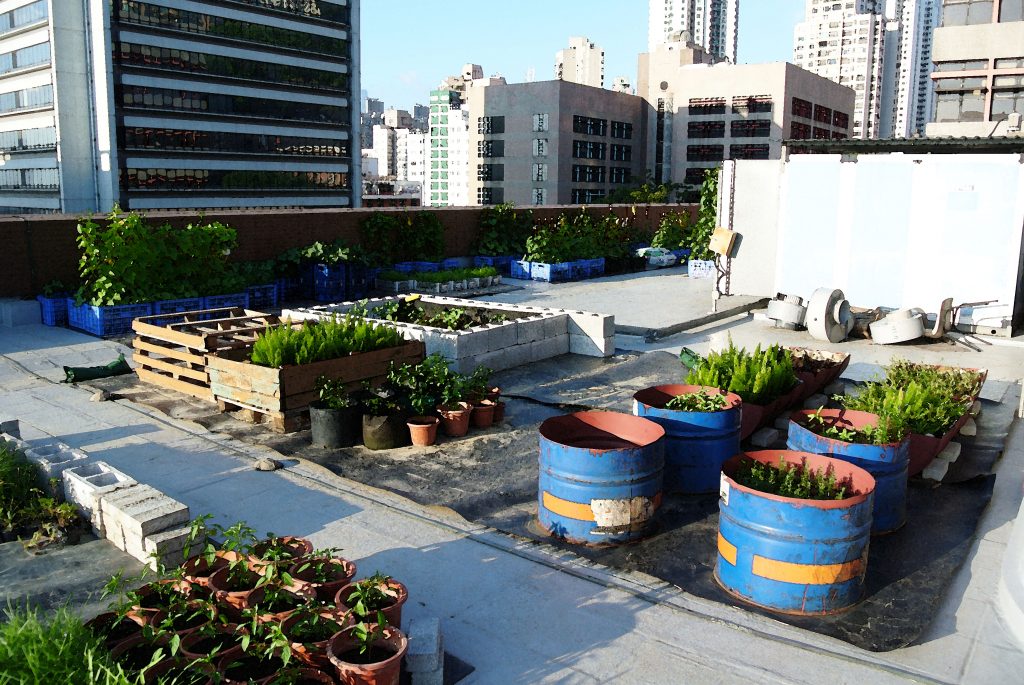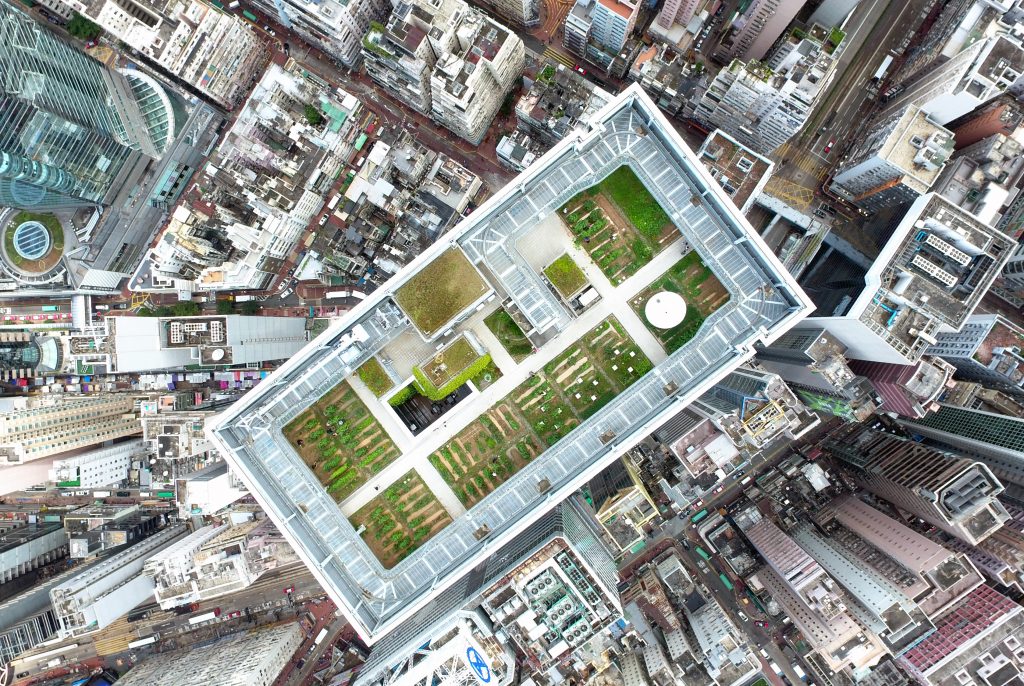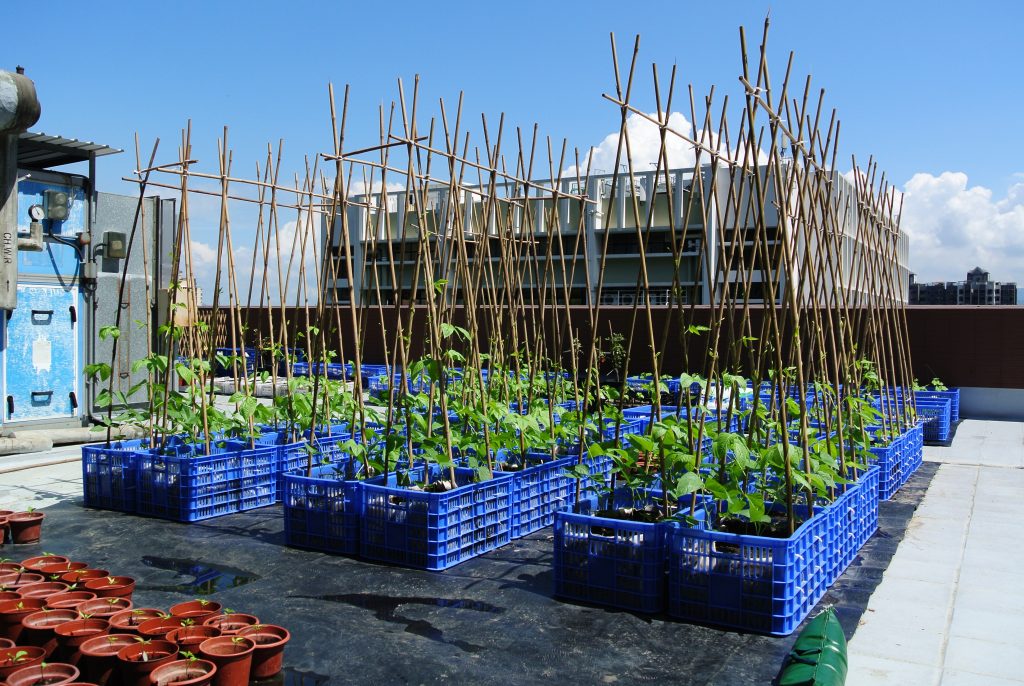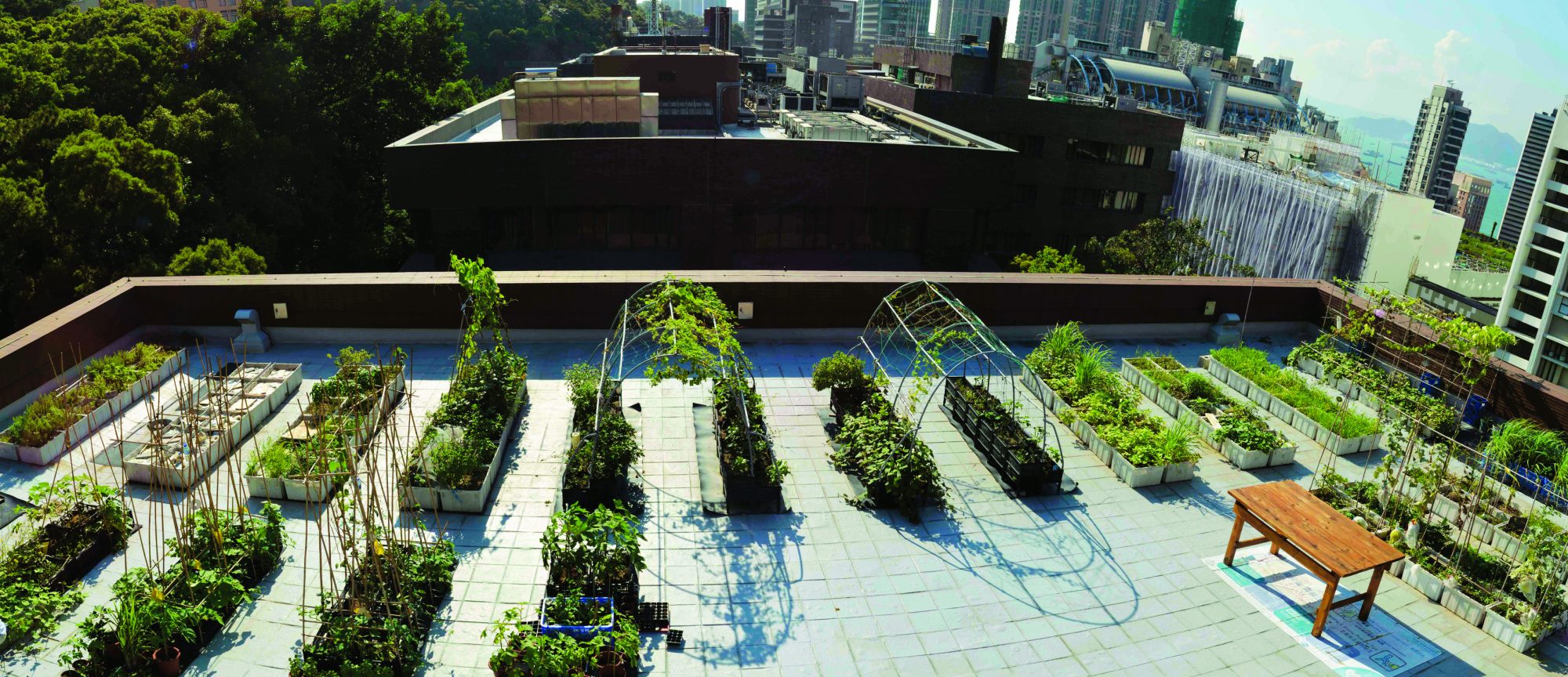WHAT IS ROOFTOP FARMING ?
 |
‘Rooftop Farming’ refers to any collective activity to grow food crops such as vegetables, fruit and herbs on building roofs and podium decks in the city, and related cultural and community activities. Typically small scale (20-50 m2 ) single sites, rooftop farms are usually run by an individual or community enterprise group often with a specific interest e.g. for community or social activation, for education, for charity (e.g. produce going to food charities, or providing opportunities for occupational therapy), or for association of their ‘sustainability’ benefits with other businesses (e.g. restaurants). Many have been established on schools or institutional buildings, where interest groups arise from within the occupants of the building or campus. Community rooftop farms use extensive farming practices, involving a large number of farmers motivated by personal interest, producing many different crops species but only in very small quantities.
|
|
Different From Other Forms of Urban Farming Rooftop farms can be distinguished from ground level urban farms by their greater spatial limitations, access difficulties and operational complexities. Growing vegetables and fruit on a roof does not appear to pose any particular technical challenges, above and beyond those encountered on ground level farms. Managers of Hong Kong rooftop farm have reported that growing conditions (sunlight, rain, shelter from winds, presence of insect pollinators) have generally been very favourable for farming. The two highest existing rooftop farms are on 38/f (Hysan Place) and 39/f (Bank of America Tower, approx. +140m), have not reported any particular problems.
|
 |
 |
Different From Green Roofs
Research studies (see publications) have reported that, in impoverished urban environments, rooftop farms can have similar environmental benefits to green roof installations, e.g. lower solar heat gain and better insulation; improved energy conservation, thermal performance and sound insulation; reduced urban heat island effect; improved air quality; and increased urban biodiversity and positive contribution to urban greening Studies have also highlighted community benefits of rooftop farms including higher levels of active recreation, healthier urban life-styles, and greater social interaction amongst participants. |
